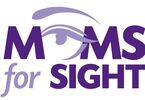|
I write this in case there are other parents of children with retinal degenerative diseases who are in one of the stages of loss and you don’t want to feel alone or need to talk to someone. You are not alone. I am here and there are many more like me who can help too. In most cases, I think people believe that a person who loses someone or something important, goes through the seven stages of loss and comes out of the process ready to move on. As a parent who passed on a vision robbing disease to my son, I can honestly say that I go through these stages over and over, and every which way, and in any order. Stage 1. The first stage is shock and disbelief. This stage happened when I first found out my son had X-linked juvenile retinoschisis. I knew it could happen because this disease affected my brothers, my cousin and older generations. But, I didn’t think it would happen to MY son. There was a 50/50 chance he wouldn’t have the disease. I was optimistic and was left with extreme disappointment. Stage 2. The next phase is denial. This stage occurred for me throughout my son’s elementary school years. He didn’t need extra help. He didn’t need large print. After all, he was doing fine. At one point, I had a vision teacher reach out to me to ask why I wasn’t doing everything for my son that was available. Why didn’t he have an IEP? Why didn’t he have a vision teacher assigned to him. That’s where the next stage came in to accompany denial, anger. How dare these people doubt my parenting? I know what’s best for my son. He was making straight A’s. He didn’t need special attention. Stage 3. Anger also came when he started middle school and the print got smaller and he started needing help. That’s when I had to stop denying that he would be just fine without help. It’s really hard to have to ask for help, especially when you refused it earlier. Asking for help made me angry. Stage 4. Bargaining happens every day. Oh the things I would give up in order for my son to have his full vision! It almost sounds like a Dr. Seuss book but it’s not. Other little bargains: Please God just let him be so smart and so talented that he’ll have his own drivers when he is older. Please God, I promise I will never stop fighting for cures for all blinding diseases, even after a cure comes for my son, but I will be okay if you cure him soon. Please don’t let his self-esteem suffer because he can’t drive when all the other boys his age are driving. Please let him have friends that are willing to be his drivers. Please let him find a young woman that sees all the good in him and doesn’t care about his vision loss. Please don’t let him miss out on things like prom, sports, college, a great career, a family, etc… Stage 5. Guilt. Duh. I knew I carried the disease. Without a doubt, I caused my son’s vision impairment. How can I not feel guilty all of the time? Stage 6. Depression. Another duh. See above. Stage 7. The last stage is acceptance. For the most part, I’m in this stage now. Thanks to my son and his ability and optimism, I can accept that he has a visual impairment and that it will be okay. He is strong. He is a really good person. He has not let his vision impairment stop him in any way. He has high hopes for college and his future and is looking to move to cities where public transportation can get him where he needs to go. He will succeed and a little part of me thinks that if he didn’t have the disease, he wouldn’t be trying as hard as he does. So, maybe this disease has actually helped him be a better person. But, there are some things that can easily bring me back to any of these previous phases (usually just temporarily): 1. When someone says, “You actually have to have good vision to do this job.” 2. When people tell me, “He doesn’t look blind.” 3. Every darn time one of his friends get to do something he can’t do: driver’s license test, drive their girlfriend on a date, take a college board test (SAT or ACT) without accommodations, etc… Stage 8. Hope. This isn’t a real stage but I’m adding it in for this one. Hope is the thing that keeps me out of the bad stages of loss. Hope says, cures are just around the corner. Hope says that my son has fought so hard, he might get into a crazy school like MIT. Hope says, companies are looking for a diverse workforce and that includes people with visual impairments. Hope says, it’s all going to be okay and the best thing I ever did in this world was have this beautiful child that will contribute to our society in a big way. Hope is a wonderful thing and it needs to prevail. If you feel yourself stuck in any of these earlier stages that can bring you down an unhealthy spiral, please don’t hesitate to reach out to me to talk. If I can’t relate, I will find someone who can. We are not in this alone.
2 Comments
|

 RSS Feed
RSS Feed